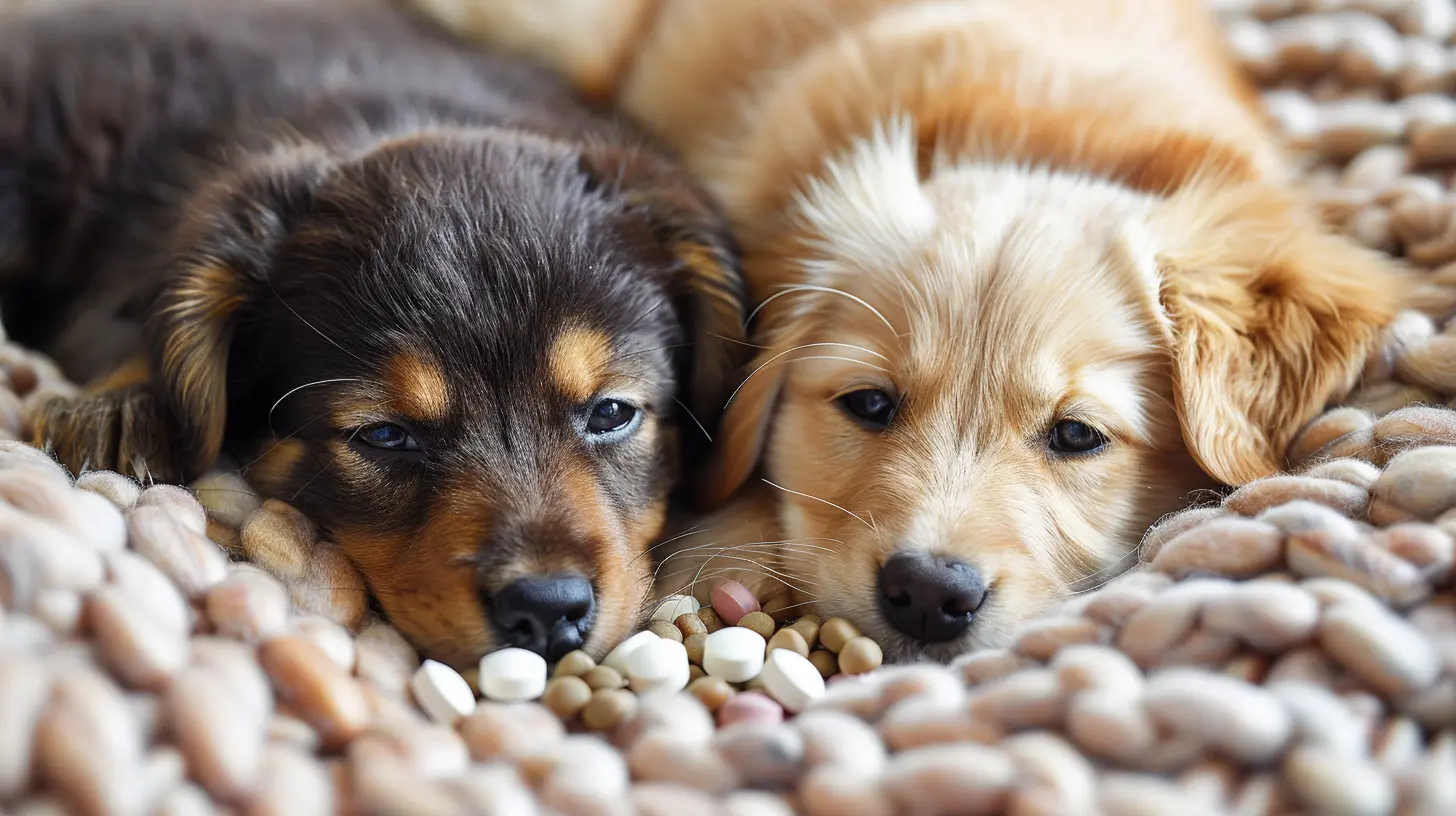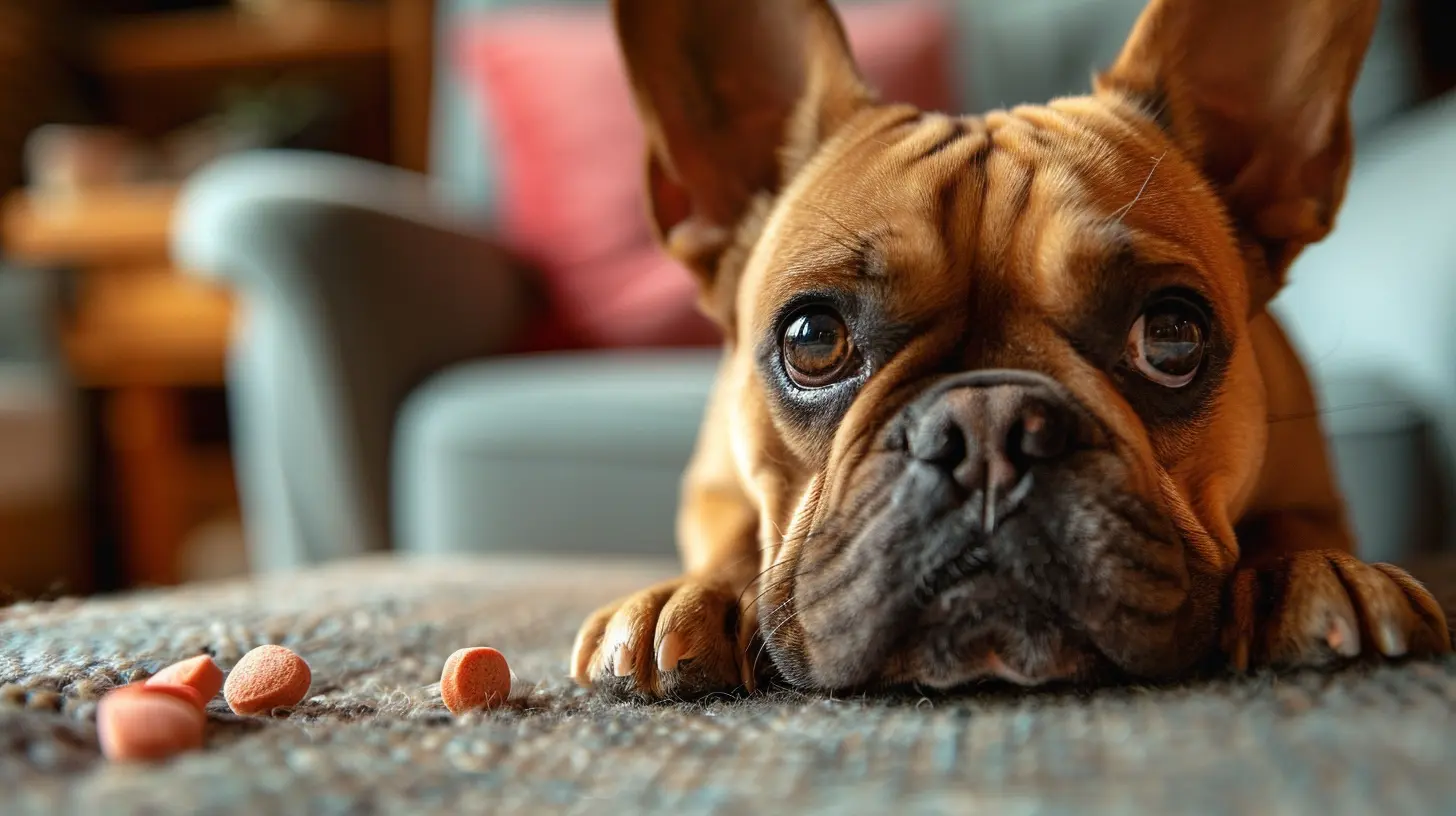Probiotics for Pets: How They Benefit Your Furry Friend
30 October 2025
Let’s talk about something that’s getting a lot of attention lately—not just in human health but in the pet world too. Yep, you guessed it: probiotics. We’ve all seen the yogurt commercials talking about “good bacteria” for our guts, right? But have you ever considered that your dog or cat might need them too?
If you’re like most pet owners, your furry companion is basically family. You want to give them the best food, the best care, and of course, all the belly rubs. So, why not give their gut some love too?
In this article, we’re diving into the world of probiotics for pets. What are they? Why do they matter? And how can they help your dog or cat live a healthier, happier life? Let’s break it all down—no medical jargon, just straight talk.
What Are Probiotics, Anyway?
Alright, let's start with the basics. Probiotics are live microorganisms, mostly bacteria and yeast, that are good for your health—especially your digestive system. And guess what? They work the same way for pets!Your pet’s digestive tract is full of bacteria. Some are good, some not so much. When the balance tips in favor of bad bacteria, your pet can end up with digestive issues, a weak immune system, or even a dull coat. That’s where probiotics come in. They help restore the balance by encouraging the growth of beneficial bacteria.
Think of probiotics like tiny superheroes marching into your pet’s belly to kick out the bad guys and make room for the good ones. Sounds pretty awesome, right?
Why Do Pets Need Probiotics?
That’s a great question. Pets, just like us, face stress, eat things they probably shouldn’t (hello, garbage can!), and may take antibiotics now and then. All these things can throw their gut bacteria out of whack.Here are some common reasons your pet might benefit from probiotics:
- Digestive issues like diarrhea, constipation, or bloating
- Skin problems or frequent scratching
- Bad breath (yep, even that can be linked to gut health)
- Weakened immune system
- After antibiotics, which not only kill bad bacteria but also wipe out the good ones
- Stressful situations, like moving, boarding, or travel
So, if your pup has a case of the runs or your kitty’s been scratching more than usual, probiotics might just be the secret weapon you need.
How Probiotics Work in Your Pet’s Body
Let’s get a little nerdy—but still keep it fun.When your pet ingests probiotics, whether through food or supplements, those friendly bacteria travel down into the digestive tract. Once they get settled, they start creating a healthy environment by:
- Crowding out harmful bacteria
- Producing natural antibiotics
- Aiding in digestion and nutrient absorption
- Boosting the immune system
- Helping produce vitamins like B12 and vitamin K
It’s kind of like having an all-star cleaning crew show up in your gut to sweep out the troublemakers and lay down the red carpet for the good guys.
Benefits of Probiotics for Dogs
Let’s talk about man’s best friend first. Dogs are curious creatures, and their stomachs often pay the price for their adventures. Here’s how probiotics can help your pooch:1. Better Digestion
Dogs are known for eating...well, pretty much anything. Probiotics can help regulate digestion, reduce gassiness (phew!), and keep bowel movements regular. If your dog deals with an upset stomach often, this could be a game-changer.2. Healthier Skin and Coat
Gut health is closely linked to skin health. Probiotics help fight off allergens and reduce inflammation, which can lead to less itching and a shinier coat.3. Stronger Immunity
Your dog’s immune system and gut are best buddies. A healthy gut means a better immune response, so your dog’s body can fight off illness more effectively.4. Less Anxiety
Believe it or not, a healthy gut can also affect your dog’s mood. The brain and gut are constantly talking to each other (it’s called the gut-brain axis). So, when the gut is balanced, your dog feels better emotionally too.Benefits of Probiotics for Cats
Now don’t worry—we haven’t forgotten about our feline friends. Cats might be more independent, but their health needs are just as important. Here’s how probiotics can help them:1. Improved Litter Box Habits
Nobody likes cleaning up after a cat with digestive problems. Probiotics can reduce diarrhea, firm up stool, and help with constipation. Basically, they make litter box duty a little less dreadful.2. Boosted Immune Health
Just like in dogs, a cat’s immune system thrives when their gut is in good shape.3. Allergy Relief
If your cat has allergies that cause itchy skin or respiratory issues, probiotics might help by reducing inflammation and supporting immune regulation.4. Hairball Control
Some probiotics assist in breaking down hair in the digestive tract, reducing the chance that it gets coughed up in your favorite shoes.Choosing the Right Probiotics for Your Pet
Okay, so you’re ready to try probiotics for your pet. But which one should you choose? Not all probiotics are created equal, and you’ll want to pick one that’s safe and effective for your specific fur baby.Here’s what to look for:
- Pet-specific formulas: Don’t just give your pet human probiotics. Look for products made especially for pets.
- Multiple strains: A good probiotic usually has several strains of bacteria for broader benefits.
- Live cultures: Make sure the product contains live and active cultures.
- Proper storage: Some probiotics need refrigeration, while others are shelf-stable. Pay attention to packaging instructions.
- Veterinarian-recommended: Always a good idea to run supplements by your vet first.
Popular strains that are often used for pets include:
- Lactobacillus acidophilus
- Bifidobacterium animalis
- Enterococcus faecium
Types of Probiotic Products for Pets
You’ve got options when it comes to how your pet gets their probiotics. Different pets have different needs and preferences, so pick what works best for them (and for you).1. Probiotic Powders
These are easy to mix into food and are often flavorless.2. Chews and Treats
Great for picky eaters! They think they’re getting a snack, but you know it’s good for their tummy.3. Capsules
Some pets will take these easily; others might require a little creativity (hello, peanut butter trick!).4. Fortified Foods
Some pet foods come with probiotics already added. Just make sure the probiotic strains are listed and that they’re alive and active.Are There Any Side Effects?
Probiotics are generally safe for pets, but just like any new supplement, there can be some minor side effects when starting out. These might include:- Mild bloating or gas
- Temporary changes in stool
- Slight changes in appetite
These usually go away after a few days as your pet’s body adjusts. But if anything seems off, talk to your vet right away.
When Should You Start Giving Your Pet Probiotics?
There’s really no “bad” time to start. Many pet parents give probiotics daily as a preventive measure. But you should especially consider them during or after:- An illness
- Antibiotic treatment
- Stressful events
- Digestive issues
It’s always a good idea to make probiotics part of your pet’s long-term wellness routine.
Final Thoughts: A Happy Gut Means a Happy Pet
Here’s the bottom line: your pet’s health starts in the gut. Probiotics might seem like a small addition to their routine, but they can lead to big changes—better digestion, fewer sick days, healthier skin, and even a happier mood.Whether you've got a tail-wagging goofball or a purring lap cat, giving their gut the backup it needs can make their lives better in more ways than one.
So go ahead—talk to your vet, pick the right probiotic, and help your furry friend feel their best from the inside out.
Because when they’re happy and healthy, you are too.
all images in this post were generated using AI tools
Category:
ProbioticsAuthor:

Eileen Wood
Discussion
rate this article
1 comments
Octavia Kelly
Just like us, our furry companions thrive with the right gut flora. Probiotics are their tiny digestive superheroes, boosting immunity and turning tummy troubles into tail-wagging adventures!
November 5, 2025 at 5:01 AM

Eileen Wood
Absolutely! Probiotics play a crucial role in maintaining your pet's gut health and overall well-being, ensuring they feel their best every day!


